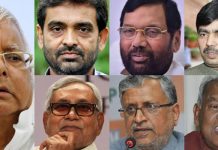Vimal was a rebel in his own time. He spent a few years living alone in England, playing badminton and waiting tables, giving up his opportunity to attend medical school. When his entry was excluded from tournaments, he rebelled and wrote to the Badminton Association of India (BAI), demanding that he be given the opportunity to collect his prize money directly from events, without having to travel through India. Back when Prakash Padukone was all the rage, he was ranked in the top twenty. In 1994, the Prakash Padukone Badminton Academy was established by them both.
“I know no one who loves badminton more than Vimal Sir. He acts like a child when watching matches at home, jumping up and down. He will return to the playing hall to watch other matches when we travel together for tournaments. The rest of us go to our rooms or leave after our bouts and meals.
Vimal detests blind obedience since, as a young player, he refused to submit to authority. That could help to explain why, unlike many overwhelming dynamics that can develop when athletes move from childhood through adolescence and into adulthood, his connection with Lakshya continues to be free of them.
“Everything a coach says shouldn’t require you to nod,” Vimal said. “I detest it when a great player does that.” You ought to be aware of what suits you personally. “You should challenge me, argue with me, don’t just blindly agree with me,” is what I usually tell Lakshya.
“Athletes bear the brunt of the support system—perhaps as little as 10% comes from coaching. Take good care of your body, and if the chance arises, go train with other elite players. Don’t stress over trivial matters like other people learning how to play your game. Just put in the necessary effort and don’t depend too much on sponsors, parents, coaches, or other authority figures.
Along with three other academy classmates, Lakshya was moved to the Danish town of Aarhus five years ago while she was still a teenager. They played for a neighbourhood club, did their own laundry and dishes, lived in a dorm, and got into fights with Danes. Sometimes he would question why he was going through this. Vimal chuckles, “I don’t believe he enjoyed cleaning the dishes too much. Lakshya’s development was supervised by Padukone’s former world No. 1 opponent, close friend, and adversary Morten Frost, who often escorted him to matches. When Lakshya was living in Denmark, he took home his first BWF World Tour championship.
After the epidemic break, Vimal believed Lakshya needed to take a few more actions. Lakshya recalls, “I was at places where no other Indian player was around. It was a conscious decision that I should travel alone for a few tournaments without a coach or physio and learn to manage by myself.” I would play my matches, return, eat, train, and tend to my recuperation. We wanted to be ready in case I couldn’t bring anyone with me to the Olympics.
In the last several years, endorsement deals have increased along with Lakshya’s brand. “The one thing Vimal Sir taught me right away is that whenever I start making enough money, I should learn to put money back into sports. OGQ has been incredibly giving in their assistance. However, occasionally I buy things for myself if I need them for my training.
Vimal and Lakshya are currently undergoing pre-Olympic training in Marseille before travelling to Paris. Lakshya’s hunger for great victories is one of his strengths, according to Vimal. He tells him, “You’re training and playing well and have as good a chance as anybody else.” This time, a medal might or might not appear. Naturally, if you ask me, I’d say that I’m hoping for this chance.
































